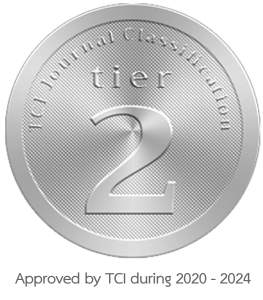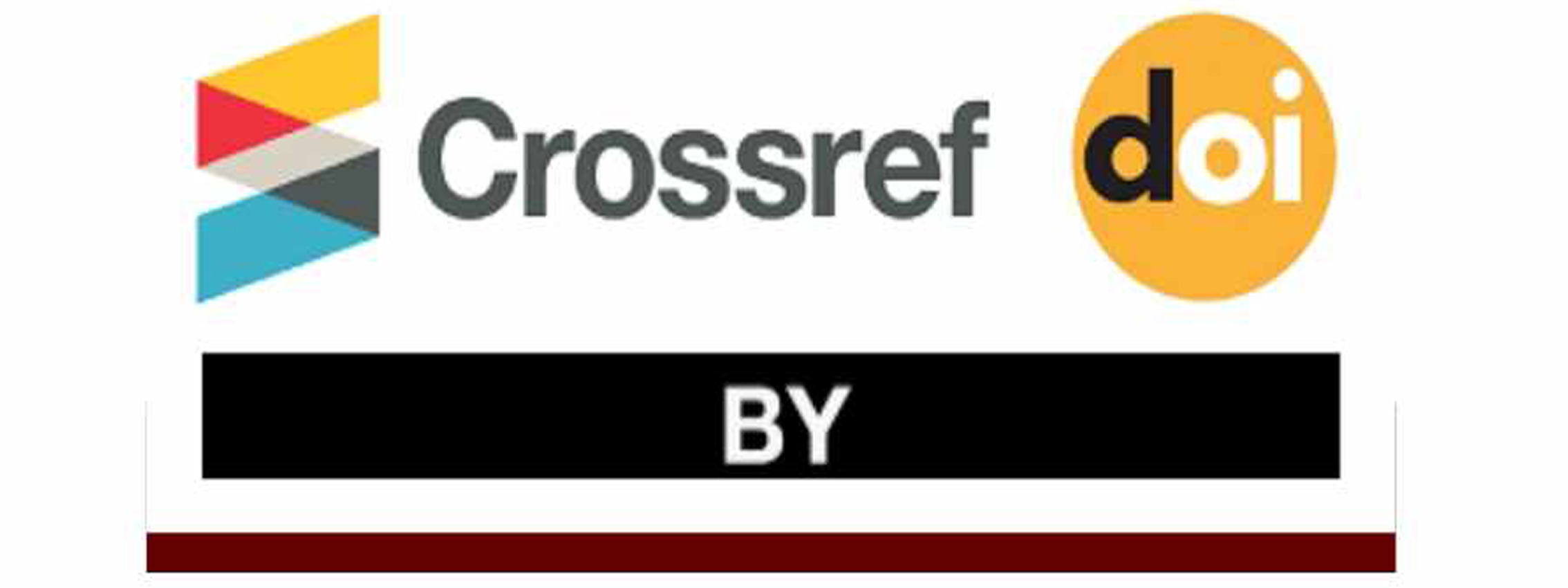Developing the English sociolinguistic competency of students through scenario-based learning methods
DOI:
https://doi.org/10.62819/jel.2025.884Keywords:
English sociolinguistic competency, grade 7 English teaching, scenario-based learningAbstract
This quasi-experimental study tested the use of scenario-based learning (SBL) to develop the English sociolinguistic competency of grade 7 students. The research objectives aimed to compare the English sociolinguistic competency test results of students taught with SBL (the experimental group) to students taught by traditional teaching methods (the control group), and to compare the English sociolinguistic competency test results of the experimental group before and after treatment with SBL lessons. The main research tools used in this study were four SBL lesson plans for the experimental group, four traditional lesson plans for the control group, and a thirty-item multiple-choice English sociolinguistic competency pre-test/post-test. The research tools were inspected and revised by experts and tested in a try-out before starting the study. Both the experiment and control groups were given the same pre- and post-tests, and both groups were taught the same lesson content and themes, with only the methodology differing. The results of the study showed no significant difference between the experimental and control groups’ post-test scores. The experimental group showed significant development of their English sociolinguistic competency, when comparing before to after SBL treatment. While this study proved that SBL can be used to develop grade 7 students’ English sociolinguistic competency, it did not prove SBL to be more effective at developing English sociolinguistic competency than traditional methods. It is possible that factors such as student motivation and SBL lesson stage timing had an impact on the results. Further research should be conducted to investigate this.
References
Baghaei, S., Bagheri, M. S., & Yamini, M. (2020). Analysis of IELTS and TOEFL reading and listening tests in terms of Revised Bloom’s Taxonomy. Cogent Education, 7(1), 1–23. https://doi.org/10.1080/2331186X.2020.1720939
Budhai, S. S., & Skipwith, K. B. (2021). Best practices in engaging online learners through active and experiential learning strategies. Routledge. https://doi.org/10.4324/9781003140405
Celce-Murcia, M., Dornyei, Z., & Thurrell, S. (1995). Communicative competence: A pedagogically motivated model with content specifications. Issues in Applied Linguistics, 6(2), 5–35. https://doi.org/10.5070/L462005216
Council of Europe. (2020). Common European framework of reference for languages: Learning, teaching, assessment companion volume. Council of Europe. http://www.coe.int/lang-cefr
Dechatiwong na Ayutthaya, N. (2024). The development of a learning management model based on sociocultural theory to enhance English communicative skills for lower secondary school students. The Golden Teak. Humanity and Social Sciences Journal (GTHJ), 30(1), 151–169. https://so05.tci-thaijo.org/index.php/tgt/article/view/262706/181393
Errington, E. (2010). Preparing graduates for the professions: Achieving employability through the exploration of near-world scenarios. International Journal of Interdisciplinary Social Sciences, 5(5), 1–10.
Haataja, E. S. H., Tolvanen, A., Vilppu, H., Kallio, M., Peltonen, J., & Metsäpelto, R.-L. (2023). Measuring higher-order cognitive skills with multiple choice questions potentials and pitfalls of Finnish teacher education entrance. Teaching and Teacher Education, 122, 1–13. https://doi.org/10.1016/j.tate.2022.103943
Hongchayangkool, K., Fongkaew, W., Yenbut, J., & Schroeder, C. (2013). Encountered changes: Voices of young teenagers during the transition from primary to secondary school. Pacific Rim International Journal of Nursing Research, 13(1), 68–79.
Hymes, D. (1972). On communicative competence. In J. B. Pride & J. Holmes (Eds.), Sociolinguistics: Selected readings (pp. 269–293). Penguin.
Kuder, G. F., & Richardson, M. W. (1937). The theory of the estimation of test reliability. Psychometrika, 2(3), 151–160. https://doi.org/10.1007/BF02288391
Lave, J., & Wenger, E. (1991). Situated learning: Legitimate peripheral participation. Cambridge University Press.
Lyman, E. W. (2013). Book review: Scenario-based e-learning: Evidence-based guidelines for online workforce learning. Ruth Colvin Clark. Issues and Trends in Educational Technology, 1(2), 22-25. https://doi.org/10.2458/azu_itet_v1i2_lyman
Mamakli, S., Alimoğlu, M. K., & Daloğlu, M. (2023). Scenario-based learning: Preliminary evaluation of the method in terms of students’ academic achievement, in-class engagement, and learner/teacher satisfaction. Advances in Physiology Education, 47(1), 144–157. https://doi.org/10.1152/advan.00122.2022
Mead, N. (2023). Insight and empathy: Comparing the responses of pre-service teachers when reflecting on objective versus descriptive scenario-based learning. Reflective Practice, 24(2), 197–209. https://doi.org/10.1080/14623943.2022.2155126
Mede, E., & Dikilitaş, K. (2015). Teaching and learning sociolinguistic competence: Teachers’ critical perceptions. Participatory Educational Research, 2(3), 14–31. https://doi.org/10.17275/per.15.29.2.3
Mejang, A. (2017). The development of a web-based training package on integrated-skills approach to English language teaching for secondary school English teachers. Journal of Education Naresuan University, 19(4), 276–292.
Ministry of Education. Thailand. (2008). Basic education core curriculum B.E. 2551 (A.D. 2008). Bureau of academic affairs and educational standards, office of the basic education commission. Ministry of Education.
Naruponjirakul, S. (2019). English instructional design using scenario-based learning. Journal of Humanities and Social Sciences. Rajapruk University, 5(1), 16–28.
Office of the basic education commission Ministry of Education. (2014). In A new guide to teaching and learning English according to the international English language proficiency framework (CEFR) at the Secondary level. English Language Institute.
Nguyen, H., & Ly, N. (2020). Enhancing communicative English basing on sociolinguistic competence of TUAF students. IOSR Journal of Research and Method in Education (IOSR-JRME), 10(4), 54–62.
Pritchard, A., & Woollard, J. (2010). Psychology for the classroom: Constructivism and social learning (1st ed.). Routledge. https://doi.org/10.4324/9780203855171
Rattanakornkul, K., & Torut, S. (2017). Effects of an English reading supplementary material focusing on ASEAN themes on the reading comprehension ability of Mattayom Suksa-Five Students of Ngiurai Boonmee Rangsarit School. Silpakorn Educational Research [Journal], 9(2), 176–189.
Roth, W.-M., & Jornet, A. (2013). Situated cognition. Wiley Interdisciplinary Reviews. Cognitive Science, 4(5), 463–478. https://doi.org/10.1002/wcs.1242
Smith, M., Warnes, S., & Vanhoestenberghe, A. (2018). Scenario-based learning. In H. P. Davies & N. Pachler (Eds.), Teaching and learning in higher education: Perspectives from UCL (pp. 144–156). UCL Institute of Education Press.
Strand, G. M. (2020). Supporting the transition to secondary school: The voices of lower secondary leaders and teachers. Educational Research, 62(2), 129–145. https://doi.org/10.1080/00131881.2020.1750305
Tupe, N. (2015). Multimedia scenario based learning programme for enhancing the English language efficiency among primary school students. International Journal of Instruction, 8(2), 125–138. https://doi.org/10.12973/iji.2015.8210a
Vygotsky, L. S. (1978). Mind in society: The development of higher psychological processes R. W. Rieber & A. S. Carton (Eds.). Harvard University Press.
Weston, A. (2018). Teaching as the art of staging: A scenario-based college pedagogy in action. Stylus Publishing.


















